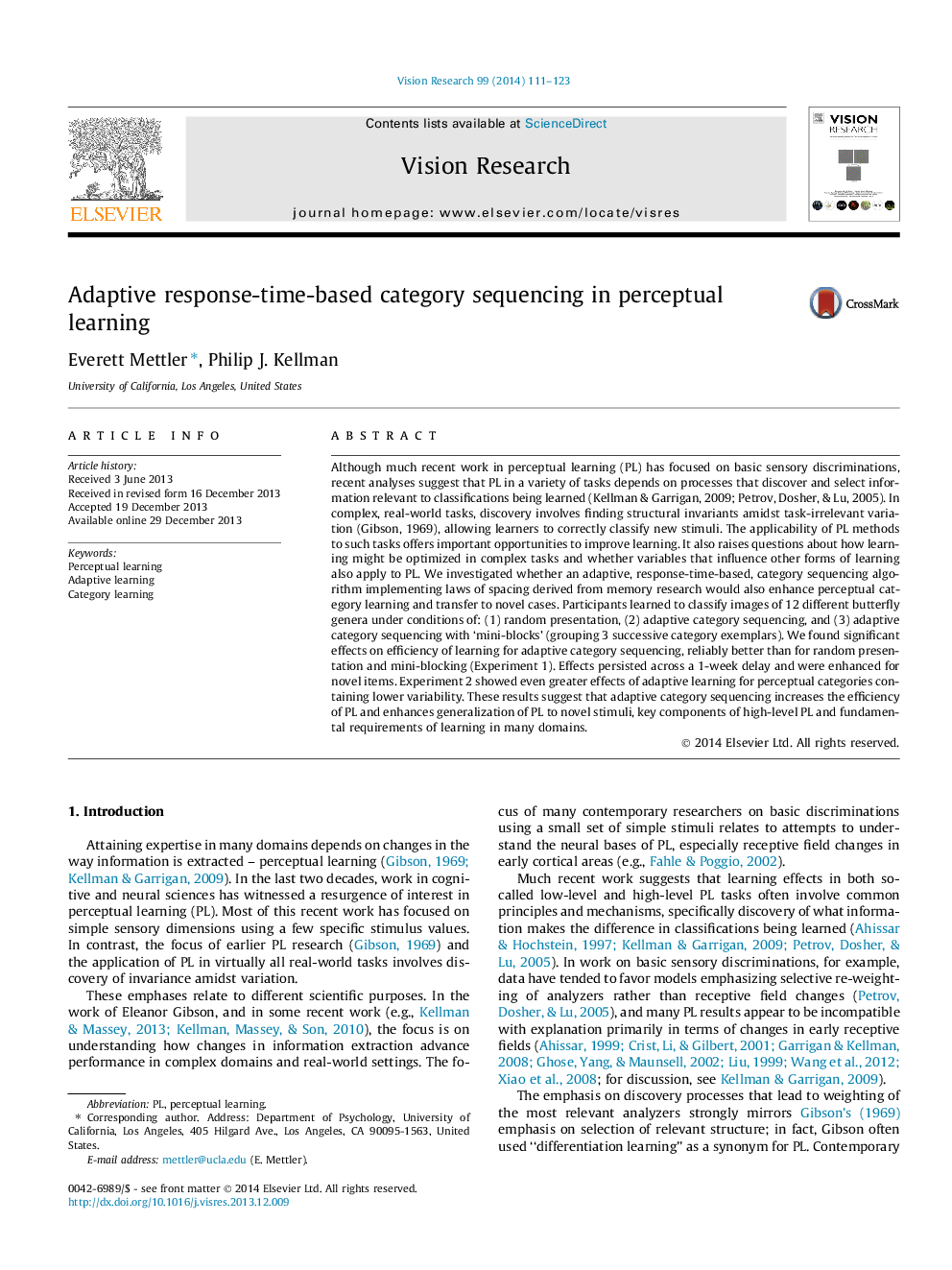| کد مقاله | کد نشریه | سال انتشار | مقاله انگلیسی | نسخه تمام متن |
|---|---|---|---|---|
| 6203433 | 1603195 | 2014 | 13 صفحه PDF | دانلود رایگان |
- An adaptive, response-time-based scheduling algorithm was developed to increase the efficiency of perceptual learning.
- Perceptual learning was demonstrated in a real-world perceptual category domain.
- Learning gains were present with familiar, seen items as well as with new, unseen instances.
- The benefits of adaptive scheduling were present at an immediate test as well as at a delay.
Although much recent work in perceptual learning (PL) has focused on basic sensory discriminations, recent analyses suggest that PL in a variety of tasks depends on processes that discover and select information relevant to classifications being learned (Kellman & Garrigan, 2009; Petrov, Dosher, & Lu, 2005). In complex, real-world tasks, discovery involves finding structural invariants amidst task-irrelevant variation (Gibson, 1969), allowing learners to correctly classify new stimuli. The applicability of PL methods to such tasks offers important opportunities to improve learning. It also raises questions about how learning might be optimized in complex tasks and whether variables that influence other forms of learning also apply to PL. We investigated whether an adaptive, response-time-based, category sequencing algorithm implementing laws of spacing derived from memory research would also enhance perceptual category learning and transfer to novel cases. Participants learned to classify images of 12 different butterfly genera under conditions of: (1) random presentation, (2) adaptive category sequencing, and (3) adaptive category sequencing with 'mini-blocks' (grouping 3 successive category exemplars). We found significant effects on efficiency of learning for adaptive category sequencing, reliably better than for random presentation and mini-blocking (Experiment 1). Effects persisted across a 1-week delay and were enhanced for novel items. Experiment 2 showed even greater effects of adaptive learning for perceptual categories containing lower variability. These results suggest that adaptive category sequencing increases the efficiency of PL and enhances generalization of PL to novel stimuli, key components of high-level PL and fundamental requirements of learning in many domains.
Journal: Vision Research - Volume 99, June 2014, Pages 111-123
